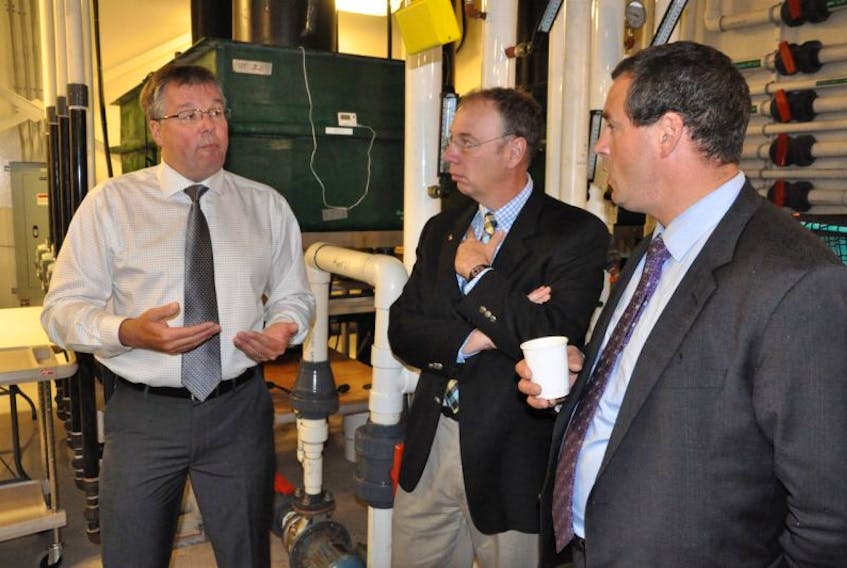“Ocean temperatures are warming. That’s causing some challenges for the animals, not only to their physiology, but potentially to more exposure to disease and more impacts of disease,” explains Kurt Gamperl a professor of biology and physiology at Memorial University’s Ocean Sciences Centre.
Gamperl, along with Mark Fast of the University of Prince Edward Island’s Atlantic Veterinary College, will lead a pan-Atlantic research project that ultimately aims to develop hardier stock, better vaccines and a stronger industry overall.
“This project is trying to understand how environmental conditions like hypoxia and temperature will impact the capacity of the fish to fight off pathogens and not get a disease or to do better at high temperatures,” says Gamperl.
To do so, they’ll measure biomarkers using genomics and other biotechnologies that examine physiology, proteins and mitochondria.
Because this type of research requires highly qualified personnel in addition to a number of graduate students and researchers working in an integrated fashion, it’s often quite expensive.
Total project costs are $4.4 million, of which the federal government, through the Atlantic Canada Opportunities Agency’s Atlantic Innovation Fund, is contributing over $2.9 million.
Nick Whelan, member of Parliament for St. John’s East, was on hand for Wednesday’s funding announcement and suggested it not only allows the industry an opportunity to protect itself against adverse climate change effects, “it also allows this facility to train the next generation of scientists and have a critical mass of people who are skilled in the genomics research that’s being done here for use in other companies in the region.”
A further $500,000 comes from the provincial government’s Department of Tourism, Culture, Industry and Innovation. It’s the first funding announcement made since the launch of InnovateNL, the one-stop shop for innovation programs and services.
The rest of the money comes from industry and national academic partners.
Asked if this type of research and the resulting data will help assuage the concerns of groups and individuals who oppose further development of the salmon aquaculture industry, Gamperl said he is hopeful.
“One of the concerns of the public is the use of antibiotics and that’s partially because a lot of the vaccines aren’t completely infectious, and if we can get better vaccines then we have less disease issues, we have healthier fish to provide to the public and less concern about the welfare of the fish.”
Mark Lane, executive director of the Newfoundland and Labrador Aquaculture Industry Association, meanwhile, says regardless of research projects like this, the dissenters will have stay true to their own cause.
“Unfortunately they don’t see the benefit of Newfoundland and Labrador stepping up to the world stage to help supply a safe, healthy, nutritious protein. The world needs it. On the back end of that, we also get jobs in rural coastal communities,” Lane says.
He said that as global populations grow and wild stocks of seafood, not just Atlantic salmon, decline, aquaculture will be key to making up for the deficit.
“Aquaculture is going to become a larger player and Newfoundland and Labrador has a place to be as a player in the world, and I think we need to embrace that and continue to investigate how to improve operations.”
Twitter: kennoliver79









